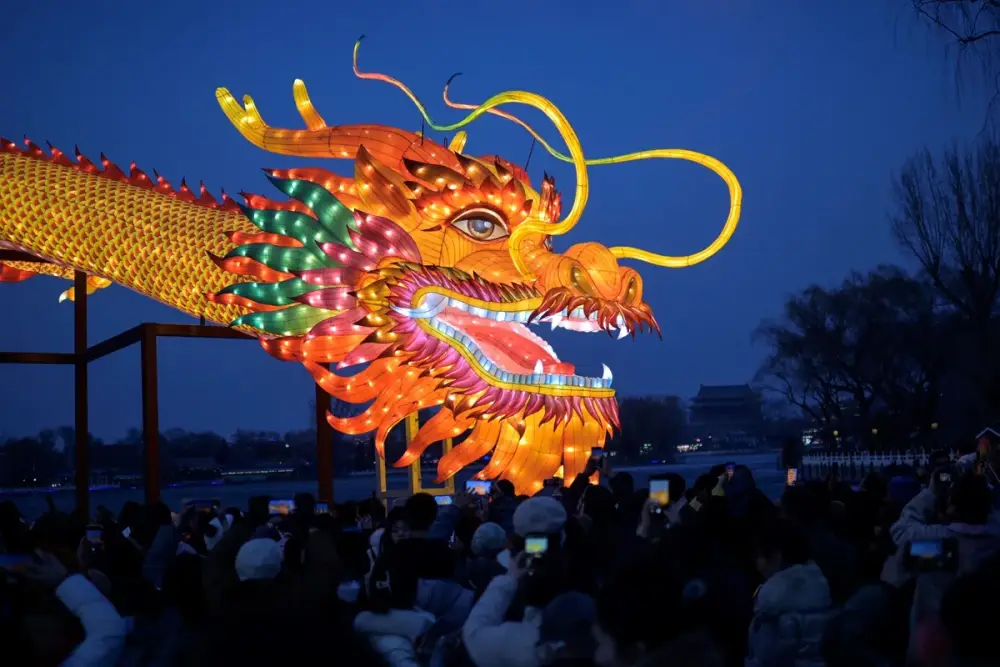
AI Trung Quốc bùng nổ nhưng đối mặt nguy cơ “chết chùm” vì cạnh tranh khốc liệt
-
Câu chuyện quen thuộc của thị trường công nghệ Trung Quốc: mỗi khi có làn sóng công nghệ mới, hàng loạt đối thủ mọc lên, cạnh tranh khốc liệt, dẫn đến cuộc đua hạ giá hoặc cung cấp miễn phí để giành thị phần.
-
Trước đây, ngành giao đồ ăn, trà sữa và xe điện đều trải qua kịch bản này, với hậu quả là hàng loạt công ty phá sản hoặc trở thành "zombie doanh nghiệp".
-
Hiện tại, cơn sốt AI tại Trung Quốc đang lặp lại kịch bản này. DeepSeek và các đột phá nguồn mở giúp giảm chi phí, nhưng đồng thời cũng khiến thị trường bão hòa.
-
Chính phủ Trung Quốc đặt cược lớn vào AI để thúc đẩy nền kinh tế, với sự tham gia của cả các gã khổng lồ như Alibaba, Baidu, Tencent lẫn các startup AI gọi là "Little Dragons".
-
Mô hình kinh doanh đang là bài toán nan giải. Các công ty chạy đua giành người dùng nhưng chưa tìm ra cách thuyết phục người dùng trả tiền. Ví dụ:
-
10 chatbot AI hàng đầu của Trung Quốc chỉ tạo ra doanh thu 1 triệu USD từ App Store iOS trong 12 tháng tính đến tháng 5/2025.
-
Trong khi đó, riêng ChatGPT của OpenAI thu về 669 triệu USD từ iOS trong cùng kỳ.
-
-
CEO Baidu, Robin Li, từng chỉ trích tình trạng lãng phí tài nguyên và sức mạnh tính toán do quá nhiều mô hình AI trùng lặp.
-
CEO MiniMax dự đoán thị trường AI Trung Quốc sẽ sớm phải trải qua một đợt sáp nhập hoặc thanh lọc lớn.
-
Tuy nhiên, sự kiện DeepSeek ra mắt mô hình reasoning vượt trội đầu năm nay lại làm "đổ thêm dầu vào lửa", khiến sự cạnh tranh càng khốc liệt hơn.
-
Tính đến tháng 4/2025, Trung Quốc đã có hơn 3.700 công cụ AI tạo sinh đăng ký và đang duyệt từ 250 đến 300 sản phẩm mới mỗi tháng.
-
Việc mở rộng ra thị trường quốc tế cũng không dễ dàng do căng thẳng địa chính trị. Nhiều quốc gia như Úc, Ý đã hạn chế hoặc cấm DeepSeek trên thiết bị chính phủ.
-
Ngay cả lĩnh vực AI Agent – từng được kỳ vọng là lối thoát để tạo khác biệt – giờ cũng đã trở nên bão hòa.
-
Các startup Little Dragons đang chịu áp lực lớn hơn so với các ông lớn như Alibaba, ByteDance và Tencent vốn có nguồn lực tài chính và hạ tầng mạnh hơn để theo đuổi cuộc đua dài hơi.
-
Dù được chính phủ và thị trường thổi phồng kỳ vọng, nguy cơ hình thành hàng trăm chatbot hoặc AI Agent "zombie" là hoàn toàn có thể xảy ra, song song với một số ít đột phá thực sự kiểu DeepSeek.
📌 Trung Quốc hiện có hơn 3.700 công cụ AI tạo sinh, với tốc độ phê duyệt 250-300 sản phẩm mới mỗi tháng. Tuy nhiên, doanh thu của 10 chatbot AI hàng đầu Trung Quốc chỉ đạt 1 triệu USD từ iOS, quá nhỏ so với ChatGPT (669 triệu USD). Cuộc cạnh tranh khốc liệt đẩy nhiều startup vào nguy cơ "chết chùm", trong khi các ông lớn như Alibaba và Tencent có lợi thế về tài chính để trụ lại. Thị trường AI Trung Quốc đứng trước bài toán sống còn: đổi mới thực chất hoặc sụp đổ hàng loạt.
https://www.bloomberg.com/opinion/articles/2025-06-26/china-s-ai-dragons-risk-choking-each-other
China’s AI Dragons Risk Choking Each Other
Thảo luận
Follow Us
Tin phổ biến



